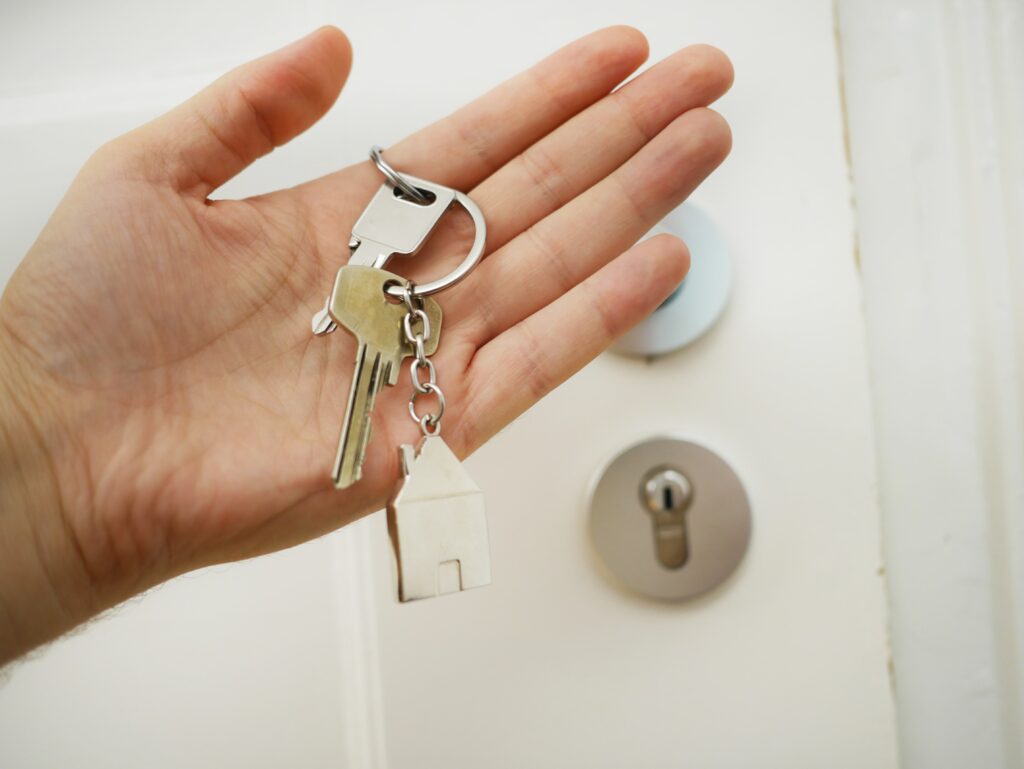Navigating the path to homeownership often feels like an uphill battle, especially when saving for a down payment. Yet, for many Australians, the disciplined routine of monthly rent payments could unexpectedly become their golden ticket to mortgage approval.
This concept, known as “rent as genuine savings”, is increasingly recognised by lenders and could be a game-changer for prospective homeowners currently renting especially first home buyers looking to take that first step into the property market. Be sure to consult one of our top listed mortgage brokers in Sydney and Melbourne for professional guidance.
The Emergence of Rent as Genuine Savings
Traditionally, lenders require proof of genuine savings to approve a home loan. This proof usually comes in the form of bank statements showing consistent savings over time. The underlying principle is to demonstrate financial discipline and reliability, which lenders equate with a lower risk of default.
However, with the cost of living and the housing purchase price rising, saving a substantial deposit while renting has become challenging for many.
Recognising this dilemma, some forward-thinking lenders are now considering regular rent payments as a form of genuine savings. This shift acknowledges the financial discipline required to make consistent rent payments, which can be comparable to saving for a deposit.

How Does Rent Qualify as Genuine Savings?
For rent payments to be considered genuine savings, certain criteria must be met. Typically, lenders look for a history of at least 12 months of continuous rental payments at the same address to identify whether you pass the genuine savings requirement.
These payments must be made on time and in full, as documented by a rental ledger and/or rental history letter from a licensed property management agency. The idea is that if you can manage your rent responsibly, you’re likely to handle mortgage repayments with the same level of seriousness.

The Benefits for Prospective Homeowners
The recognition of a borrower’s rent being counted as genuine savings offers several benefits to those looking to transition from renting to owning. It opens up opportunities for individuals who may have struggled to save a traditional deposit while covering rental expenses.
By leveraging their rental history, they can potentially bypass the need for a large savings account, making homeownership more accessible.
The Impact of Rent as Genuine Savings on Loan Terms
The acceptance of rent as genuine savings can potentially influence the terms of your loan, including interest rates and loan-to-value ratios (LVR). Lenders may offer more favourable terms to applicants who have proven their financial discipline through regular rent payments, viewing them as lower-risk borrowers.
However, the specifics can vary significantly between lenders, making it important to shop around or work with a mortgage broker to find the best deal.

What Lenders Are Saying
Not all lenders accept rent as genuine savings, and among those that do, criteria and policies vary significantly. Some may require the rental amount to closely match the expected mortgage repayment, ensuring the transition from renter to homeowner is financially feasible.
Others might still require some form of additional savings on top of the rental history. It’s crucial to research and consult with mortgage brokers who can navigate the landscape and identify lenders sympathetic to using rent as genuine savings.
Understanding Lender’s Criteria for Rent as Genuine Savings
When considering rent as genuine savings, lenders have specific criteria to ensure that applicants present a low risk. Lenders require genuine savings that often include a minimum period of consistent rental payment history, usually 12 months, and evidence that these payments were made in full and on time.
Renters must demonstrate this through official documents, such as a rental ledger from a licensed property manager.
Additionally, some lenders may assess the amount of rent paid against the potential mortgage repayments to gauge financial stability. Understanding these criteria is crucial for applicants to strengthen their case when applying for a mortgage.

Preparing Your Application
When preparing to use your rent as genuine savings for a mortgage application, organisation is key. Ensure you have a complete and up-to-date rental history, bank statements that reflect your rental payments, and any other documentation that supports your financial reliability such as your rental history with a licensed real estate agent.
It’s also advisable to minimise other debts and keep your credit score in good standing, as these factors will further strengthen your application.
Navigating the Application Process with Rent as Genuine Savings
Preparing a mortgage application using rent as genuine savings requires careful documentation. Gather and organise all relevant financial records, including your rental history showing on time payments, bank account statements, and evidence of regular income.
It’s also wise to thoroughly check your credit score and address any issues well before applying. Engage with a mortgage broker experienced in this area to guide you through the application process and increase your chances of approval.

Strategies for Maximising Your Rental History
To make the most of your rental history, start by ensuring all rent payments are made electronically, creating a clear, traceable record. Engage with your property manager or landlord to maintain a positive rental history of payments.
Consider extending your lease to meet the 12-month criterion if necessary. Additionally, keeping rent payments in line with what your expected mortgage repayments would be can demonstrate your ability to handle similar financial commitments.
Additional Financial Preparations Beyond Rent as Genuine Savings
While rent as genuine savings can play a pivotal role in securing a home loan, applicants should not overlook other financial preparations. Building a strong emergency fund, paying down existing debts, and exploring additional savings avenues are all critical steps.
These actions not only strengthen your loan application but also ensure you’re financially prepared for the responsibilities of homeownership, from mortgage repayments to property maintenance and unexpected expenses.

Challenges and Considerations
While using rent as genuine savings is an exciting prospect, it’s not without its challenges. The availability of lenders who accept this approach is still limited, and the criteria can be stringent.
Additionally, this does not eliminate the need for other loan approval requirements, such as a stable income and a good credit history.
Potential borrowers should also be aware of the overall financial commitment of a mortgage, which includes not just the loan repayments but also property taxes, maintenance, and insurance.
Future Trends: The Evolving Recognition of Rent as Genuine Savings
The financial industry’s acceptance of rent as genuine savings is a relatively new development, and it’s likely to evolve further as lenders adjust to market demands and changing demographics.
Staying informed about these trends can offer potential homeowners new opportunities for achieving their dreams. It also underscores the importance of financial literacy and proactive financial management for renters looking towards homeownership.

Conclusion
For renters dreaming of homeownership, the concept of rent as genuine savings offers a glimmer of hope. It acknowledges the financial discipline exhibited through regular rent payments and opens a new avenue for mortgage approval.
As the landscape continues to evolve, it’s more important than ever for prospective buyers to stay informed and explore all options available to them. With the right approach and preparation, the transition from renting to owning can become a reality.
Rent as genuine savings is a testament to the changing dynamics of the housing market and the financial industry’s attempt to adapt to the needs of modern homebuyers.
It represents a significant shift towards making homeownership more accessible, acknowledging the realities of contemporary financial challenges, and offering a lifeline to those who thought their dream of owning a home was out of reach. For further guidance, contact our top listed mortgage brokers in Sydney and Melbourne.
FAQs
Using rent as genuine savings means that your history of paying rent can be considered by lenders as proof of your ability to save and manage money. This can help qualify you for a home loan even if you don’t have traditional savings.
Lenders may consider consistent rent payments over a specified period (usually 12 months) as evidence of genuine savings. This shows your financial discipline and capability to handle regular financial commitments.
The benefits include enhancing your home loan application, potentially qualifying for a loan sooner, and demonstrating financial responsibility without needing a traditional savings account.
Not all lenders accept rent as genuine savings. It’s important to consult with a mortgage broker or check with individual lenders to find those that recognize rent payments in their assessment criteria.
To prove rent as genuine savings, you typically need rental payment history, a rental ledger, or bank statements showing consistent rent payments. A letter from your landlord or property manager may also be required.
Most lenders require a history of at least 12 months of consistent rent payments to consider them as genuine savings. This demonstrates stability and reliability in managing financial commitments.
Using rent as genuine savings when living with family or friends can be challenging. Formal lease agreements and documented payments are typically necessary. Informal arrangements without official records may not be accepted by lenders.
Disadvantages can include limited lender options and potentially stricter scrutiny of your financial situation. It’s also important to ensure all rent payments are well-documented and verifiable.
Using rent as genuine savings can strengthen your loan application by showing financial responsibility. It may help you qualify for a loan sooner, but lenders will still assess other factors such as income, credit history, and overall financial health.
A mortgage broker can help by identifying lenders that accept rent as genuine savings, advising on required documentation, and improving your overall financial profile. They provide expert guidance to navigate the loan application process successfully.

